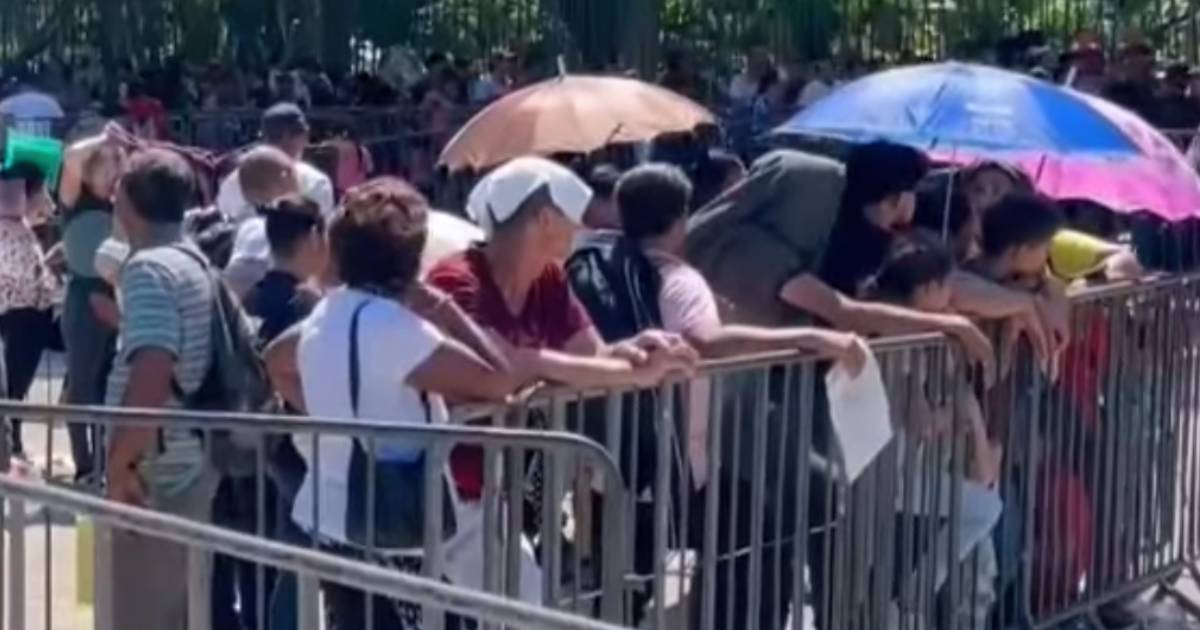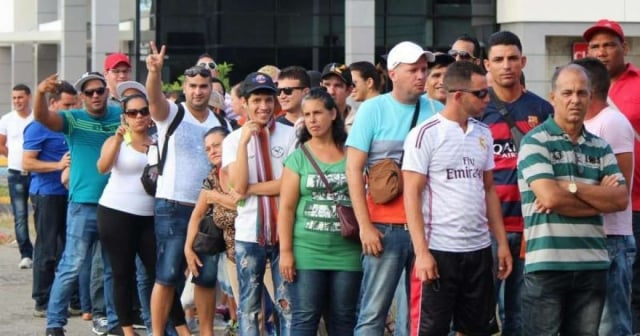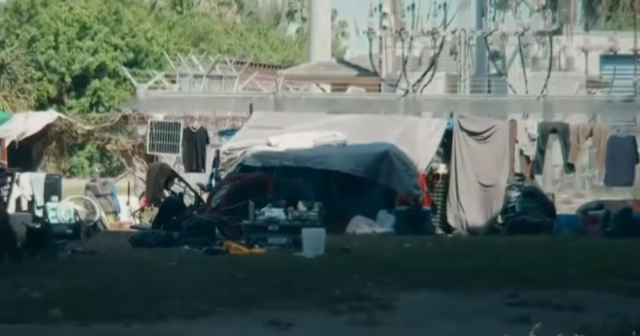
The city of Tapachula on Mexico's border with Guatemala has become an impenetrable bottleneck for thousands of Cubans who have been stranded in that town for months.
Unable to continue heading to the United States and with appointments through the platformCBP One delayed, many who have chosen to seek political refuge fromthe Mexican Commission for Aid to Refugees (COMAR), but they have not obtained answers about their immigration procedures either.
The Center for Human Dignification (CDH) and defenders of migrants, denounced in statements to the news agencyWHICH that the situation has become alarming and that, in short, "COMAR is useless."
Lawyer José Luis Pérez, specialist in Migration and Vulnerable Groups, described Tapachula as a "large funnel" and a "bottleneck in Latin America" because it is of no use for COMAR to exist, since it does not offer them the possibility of regularization.
Cubans occupy second place in refugee requests so far this year, with a total of 2,352 requests, falling only behind Honduras, which registered 3,213 requests.
However, many spent up to seven months waiting for COMAR's response and in February they received an unfavorable solution to their cases.
A young man reported that his application submitted in August of last year was denied and now he remains without documents to work and support his two children.
In 2023, migrants from the island ranked third in asylum requests in Mexico with 18,386 requests, surpassed by Haiti and Honduras.
This last data represents an increase of 1.09% compared to the record applications of 2022.
In September 2023 there were more than20 thousand Cubans stranded who faced serious difficulties in finding work.
Those from the Caribbean nation also got involved inseveral caravans to pressure the authorities to expedite the resolution of their cases. In November of that year, a Cuban woman was the victim of femicide in that state. She was murdered by her ex-partner while working in a restaurant and the man, also a Cuban migrant, was sentenced to 30 years in prison.
Despite these problems, the island's migrants are not discouraged and continue to undertake the journey through Central America, driven by the serious situation in their country, where the lack of basic products and food, inflation and the lack of freedoms and opportunities have served as a trigger for the largest Cuban migration crisis in history.
What do you think?
SEE COMMENTS (3)Filed in:






